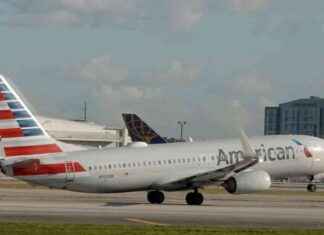Boeing Implements Hiring Freeze and Cost Cuts Amid Worker Strike
Boeing, one of the world’s leading aerospace manufacturers, announced significant cost-cutting measures on Monday in response to a strike by more than 30,000 factory workers. The company has implemented a hiring freeze, paused nonessential staff travel, and reduced supplier spending in an effort to preserve cash during this challenging period.
The strike, which began early Friday after workers rejected a tentative labor deal, has had a significant impact on Boeing’s operations, particularly in the Seattle area where most of the factory workers are based. The halt in aircraft production has forced Boeing to make tough decisions to mitigate the financial impact of the strike.
According to CFO Brian West, Boeing will be making “significant reductions” to supplier spending and stopping most purchase orders for its 737 Max, 767, and 777 jetliners. This move is expected to have ripple effects on the hundreds of suppliers that rely on Boeing’s business for their own operations.
In a note to staff, West emphasized the importance of reaching a new contract agreement that reflects the feedback of the workers and allows operations to resume. He acknowledged the challenging period that Boeing is going through and stressed the need to take necessary actions to safeguard the company’s future.
Impact on Suppliers and Financial Outlook
The financial impact of the strike will depend on its duration, but Boeing is focused on conserving cash and preserving its financial stability. West mentioned at a recent Morgan Stanley conference that temporary furloughs for employees, managers, and executives may be necessary in the coming weeks to manage costs.
The strike has also raised concerns among credit rating agencies, with Moody’s putting all of Boeing’s credit ratings on review for a potential downgrade. Fitch Ratings warned that a prolonged strike could further jeopardize Boeing’s credit rating, leading to increased borrowing costs for the company.
Boeing has been facing financial challenges throughout the year, with production slowdowns and mounting debt contributing to a cash burn of approximately $8 billion in the first half of the year. The strike has added another layer of complexity to Boeing’s financial situation, prompting the company to take decisive actions to navigate through this period of uncertainty.
CEO’s Response and Path Forward
Boeing’s new CEO, Kelly Ortberg, has expressed a strong desire to return to the bargaining table and reach a new deal with the striking workers. Ortberg’s leadership will be crucial in guiding Boeing through this challenging time and finding a resolution that is acceptable to both the company and its employees.
While Boeing remains committed to maintaining funding for safety, quality, and customer support work, the company is facing tough decisions to ensure its long-term viability. The strike has underscored the need for effective communication and collaboration between Boeing and its workforce to address the underlying issues and move forward in a constructive manner.
In conclusion, Boeing’s decision to implement a hiring freeze and cost-cutting measures in response to the worker strike reflects the challenges facing the aerospace industry. The company’s ability to navigate through this period of uncertainty will depend on its ability to reach a new contract agreement with its employees and maintain financial stability amidst evolving market conditions.








